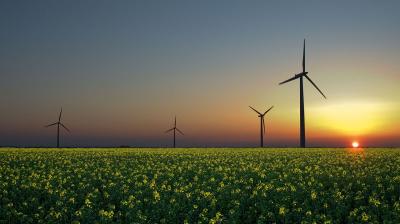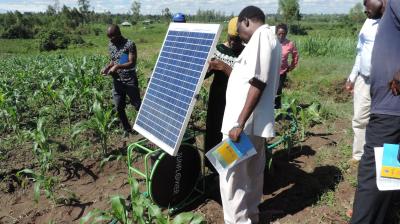Events
Sustainability
This expert meeting aims to bring together decision-makers and key stakeholders from Government of Kenya, private sector and civil society in order to explore from multiple perspectives the potential reach and implementation of green growth plans in Kenya.
Green growth is increasingly gaining traction as a way to reconcile lasting and broad-based economic growth with climate change mitigation and the goal of sustainable development. As a crucial means to achieve green growth, the energy sector is a central concern. Kenya is a party to the UNFCCC process and is committed to tackling climate change as viewed from its various policies and programmes. Kenya also submitted its INDC to the UNFCCC in July 2015 and sets out an emission reduction target of 30% by 2030 compared to its business-as-usual scenario.
Kenya Vision 2030 and the Second Medium Plan 2013-2017 identify energy as one of the infrastructure enablers for transformation into “a newly-industrialising, middle-income country providing a high quality of life to all its citizens in a clean and secure environment.” Access to competitively-priced, reliable, quality, safe and sustainable energy is essential for achievement of the Vision.
An impression of the expert meeting
Constraints in energy supply
Currently, there are constraints in energy supply, which include low access to modern energy services, high cost of energy, irregular supply and high cost of energy investments. About 87% of the country’s domestic energy demand is met by biomass. Kerosene based lighting continues to be the leading source of illumination at the household level. Access to modern energy services is required to reduce the wood fuel and kerosene dependency. The draft National Energy and Petroleum Policy (NEPP) states that as of June 2014, 32% of Kenyans had access to electricity. A study commissioned by the Ministry of Energy and Petroleum in 2014 established that Kenya has one of the highest connection charges leading to low access to electricity supply. Despite the successful electrification of public facilities in rural areas, most neighbouring households largely remain unconnected. The NEPP goes on to state that “going by the current pace at which connections are being effected, the achievement of 70% universal access to electricity by 2020, will not be possible without a paradigm shift in the electrification strategy.”
Hence, Kenya requires additional generation capacity to meet growing demand, reduce energy costs and diversify generation mix to minimise risks associated with overreliance on one source of energy. In this respect, geothermal and wind energy appear most promising. New policies, including Kenya’s National Energy Policy 2014 (as part of Vision 2030 framework) and the Least Cost Power Development Plan aim to increase geothermal and boost energy security. With a focus on the diversification of energy sources, they entail a risk of potentially increasing GHG emissions and it is not yet clear if sufficient incentives are offered to further encourage private sector participation. At the same time, Kenya has discovered coal and oil for which exploration has been going on since 2013.
Platform
This expert meeting aims to bring together decision-makers and key stakeholders from Government of Kenya, private sector and civil society in order to explore from multiple perspectives the potential reach and implementation of green growth plans in Kenya. On this basis, the meeting will provide a platform to discuss the connections between green growth and energy security concerns, as well as with Kenya’s integration in the global economy, its national development trajectory, and its policies towards poverty reduction and (regional) stability. A critical part of the meeting will explore how and whether legitimate energy security arguments, such as these related to improving energy access, form an obstacle to green growth, or whether new opportunities are arising for “winning coalitions” for a new style of development as the new renewable energy boom kicks off across Africa.
The links meeting will explore the relationship between green growth and Kenya’s emission reduction commitments as submitted under the UNFCCC Paris Agreement of 2015. A key objective will be to gather expert opinions on the viability of Kenya’s current commitments to climate change mitigation, and what might be reasonably expected of Kenya in the future.
More broadly, the meeting will be an opportunity for different stakeholders to discuss various strategic, future-oriented questions in their field of work. The ideas and contributions of participants expressed during the meeting will be incorporated into ongoing research by the Clingendael Institute and the Energy Research Centre of the Netherlands into the potential for and constraints on green growth in major developing countries. It will also provide input for policy-makers in Europe working on the Paris Agreement.
The meeting will be held under Chatham House rule and will take place in a roundtable setting. The Clingendael Institute anticipates participation of 25 key stakeholders in the energy sector ranging from senior policy makers to representatives of the private sector, civil society and academia.
The programme can be found here. The full list of participants here.






